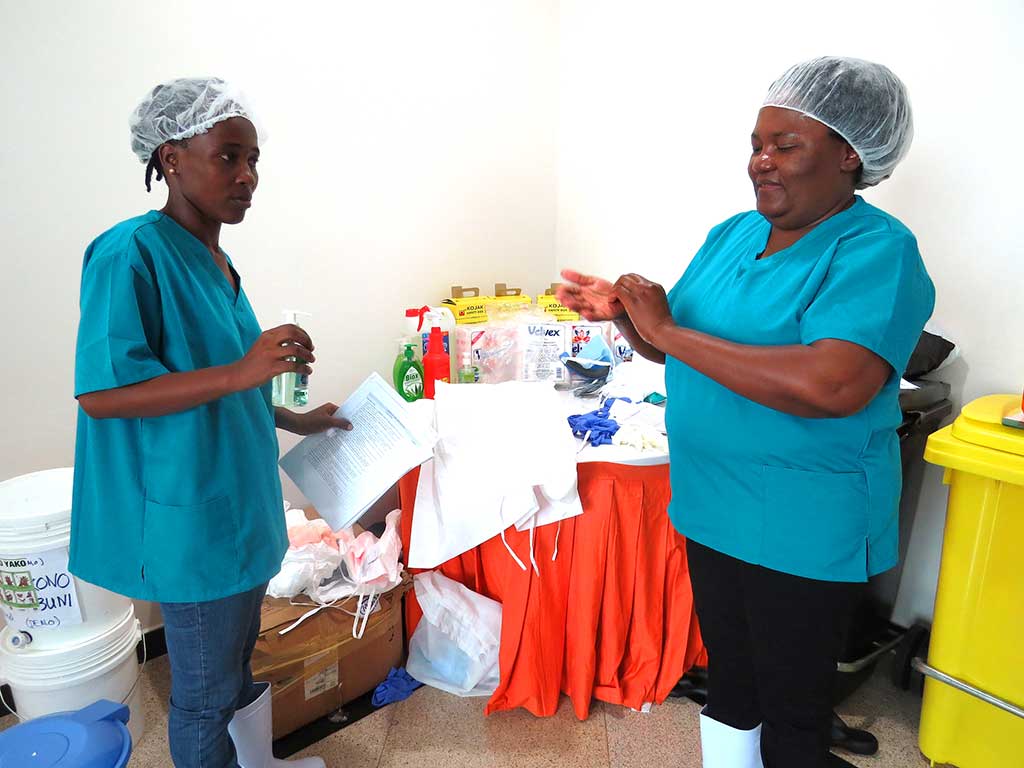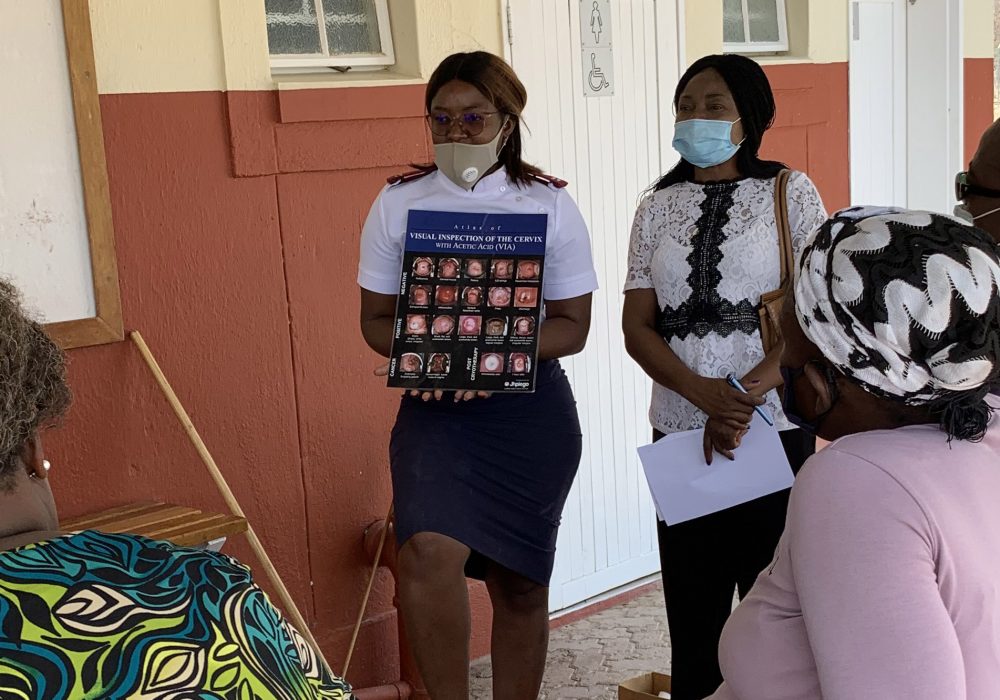Namibia



Country Contact
Abubakari Mwinyi, Country Director
Tel. +264 61 225 519
Jhpiego Namibia
Jackson Kaujeua Street
Mozart Square Complex
Windhoek, Namibia
Current and Recent Donors
CDC
Health Resources and Systems Administration
USAID
Reaching the most vulnerable and at-risk since 2009.
- Through the ACHIEVE project, Jhpiego successfully implemented DREAMS (Determined, Resilient, Empowered, AIDS-free, Mentored and Safe) initiatives in 21 health facilities across four districts in the north of Namibia. As a result, more than 54,000 adolescent girls and young women were reached with standardized, evidence-based interventions designed to promote the adoption of HIV prevention behaviors and service uptake.
- ACHIEVE also strengthened the capacity of two local partners (Catholic AIDS Action and Star for Life) to lead and sustain HIV prevention initiatives among adolescent girls and young women. This was achieved through training, coaching and mentoring on DREAMS program implementation and monitoring and evaluation, as well as technical capacity building in gender-based violence and other areas.
- Under the RISE project, Jhpiego conducted a social media campaign with partner organization AIfluence to learn about sentiments regarding COVID-19 vaccination and to support the Ministry of Health and Social Services (MOHSS) to design responses that encourage people to get vaccinated and support protection for all Namibians. RISE worked with the MOHSS to develop and launch the MOHSS COVID-19 website to ensure public access to accurate information about COVID-19.
- Under the HW21 project, Jhpiego collaborated with the MOHSS on the development of a National Cervical Cancer Elimination Strategic Plan, National Cervical Cancer Prevention Program Awareness and Demand Generation Strategy, and National Quality Strategy for Cervical Cancer Prevention, and has advised the MOHSS on their implementation, through activities such as training of trainers for cervical cancer screening.
Our Technical Areas in Namibia
Our Work in Namibia
Maximizing Options to Advance Informed Choice for HIV Prevention (MOSAIC)
Under this global project, led by FHI360 and funded by the U.S. Agency for International Development (USAID), Jhpiego is leading project implementation in Namibia. The goal of the MOSAIC project is to ensure that individuals, especially women, can protect themselves from acquiring HIV by accelerating introduction and scale-up of new biomedical prevention products, and by expediting availability, acceptance, uptake and impact of these products.
Enhancing Global Health Security: Expanding Efforts and Strategies to Protect and Improve Public Health Globally
Funded by the U.S. Centers for Disease Control and Prevention (CDC), this five-year project builds upon activities funded by CDC to support Global Health Security through implementation of programs and activities that focus on protecting and improving health globally through partnerships with Ministries of Health and other institutions. With an initial emphasis on addressing the COVID-19 pandemic, the project is supporting countries—including Namibia—and carrying out regional work in West Africa and South America to improve prevention of avoidable epidemics, including naturally occurring outbreaks and intentional or accidental releases of dangerous pathogens, and to improve ability to detect threats early and respond rapidly and effectively to public health threats of international concern. The project is being implemented by a Jhpiego-led consortium that includes the Johns Hopkins Center for Health Security, the Johns Hopkins University Applied Physics Laboratory, Global Scientific Solutions for Health, and Johns Hopkins University Center for Global Health.
The people we serve
Country Contact
Abubakari Mwinyi, Country Director
Tel. +264 61 225 519
Jhpiego Namibia
Jackson Kaujeua Street
Mozart Square Complex
Windhoek, Namibia
Current and Recent Donors
CDC
Health Resources and Systems Administration
USAID





